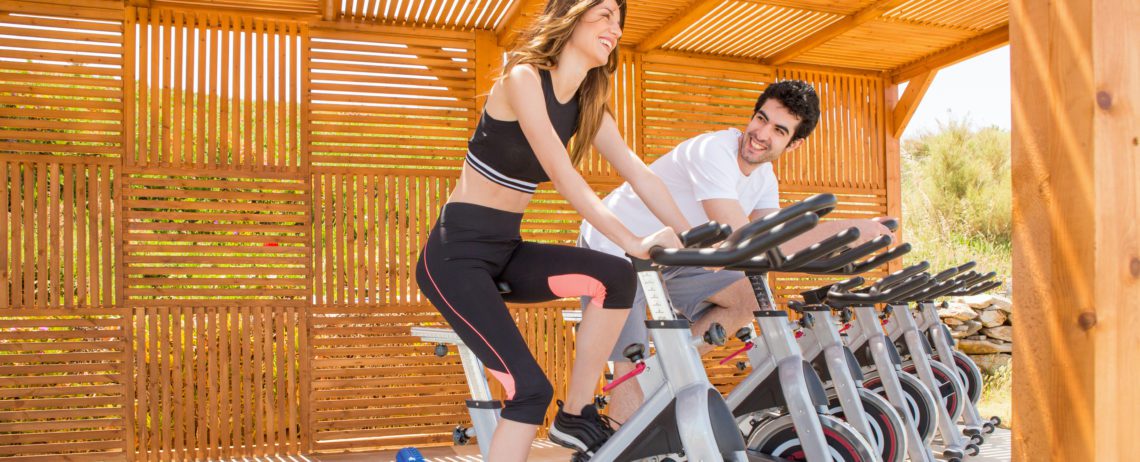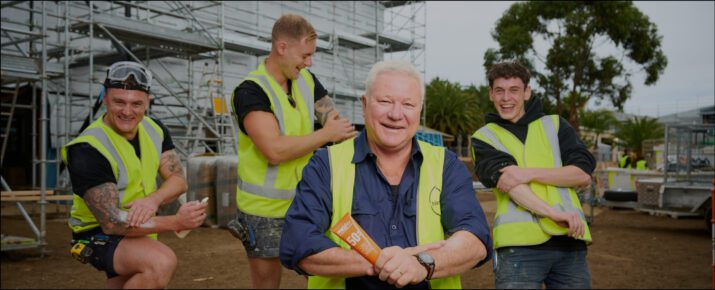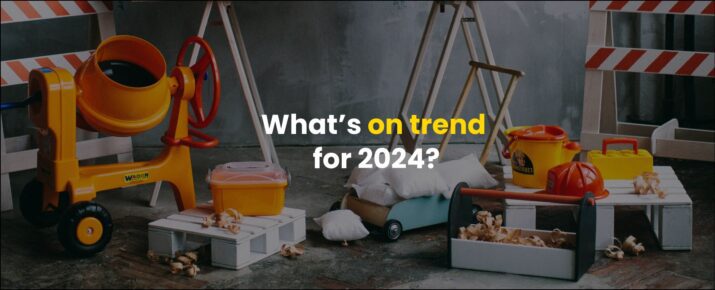The 6 Best Ways Businesses Reinvented Themselves in 2020
Industry Trends | By | 14 Dec 2020 | 4 minute read

As the radius of normal life constricted this year, businesses had to adapt quickly. Creative solutions were fostered to serve their customers where they were – in parks, in open spaces, and in the comfort of their own homes.
These businesses were able to take a fresh look at a difficult situation, and respond flexibly to current customer demands. We take a look at some of the most ingenious ways organizations around the globe have responded to the pandemic by choosing to adapt, innovate, and take risks, as well as upholding safety measures and best-practice.
1. Using QR codes to create a ‘touchless’ shopping experience
In retail, there was a significant shift towards a digital-first approach. As well as a 40% rise in ecommerce sales, the high street also had to up their game if they were going to stay relevant to an increasingly health-conscious retail shopper.
“Germaphobic, socially-distanced, coronavirus-conscious consumers have put the dampeners on touchy-feely retail.” – Raconteur
Burberry China created one of the first ‘touchless stores’ – a physical store filled entirely with digital products, using AI and QR codes to build the customer experience. A tag is scanned and the immersive experience is personalised to the customer, allowing them to play around with styles, and of course, integrate this with social media.
Linked with WeChat, China’s most popular messaging app, customers in the touchless store can click on exclusive content and create different looks in-store, then share details with friends. No touching of any garments is needed at any time – everything’s built upon personalised storytelling.
2. Using contract couriers
At the height of the pandemic, more and more people turned to online retail therapy, and many more businesses turned to ecommerce to shore up their income sources. This perfect storm caused the courier services industry to grow by 17%.
Due to the pandemic rendering many people jobless, many tech-savvy millennials tried to find success in courier contracting and companies like GrubHub, which was considering a strategic exit, and Uber Eats, DoorDash, and Postmates, which were on the verge of a merger, started thriving so much that they secured millions of dollars in capital funding and expanded beyond food delivery.
3. BYO chef home-dining experiences
When customers can’t leave their homes to dine or drink out, how can you still offer them great food? By innovating to create a product that the customer feels safe with. Pizzeria, a restaurant chain in the UK, decided to create home pizza kits that were a great success. By giving the customer control over the hygiene elements, they were able to trust the product and felt comfortable in their purchase.
4. Providing armchair education on favourite pastimes
Perhaps your customers can’t sample your products right now due to restrictions. But you could turn your business into an educational offering, like Le Motte, a Cape Wine Farm.
Armchair consumers were slow on the uptake when live wine tastings were first introduced, but they quickly rose in popularity as word got out. Offering customers the chance to enjoy some wine in a virtual social setting also provided them with some much-needed socialising, as well as meeting their safety and hygiene needs:
“Customers enjoy their wine from home — with the option to have it delivered by a courier. At the time of the tasting, those attending are taken through the different wines and invited to give their opinions.” – Werner Briedenhann, La Motte
They’ve even expanded their offering to include live wine farm tours, historic walks and sculpture walks, all with interactive elements so the customer can enjoy every aspect of the experience from home.
5. Pivoting product offering for everyday use
If your company’s outputs become untenable thanks to the pandemic, what can you do? Eco-conscious travel business OneNine5 saw a 95% drop in sales when COVID and corresponding travel bans hit.
They had to pivot – and fast. How could they continue to create a culture of safety yet still retain the core elements of the brand? They started selling eco-conscious essential everyday pouches, a travel-sized pack that can be used for domestic use and to store small items.
6. Putting family on the agenda
Mining company BHP dug deep through the crisis, offering an $800 million employment boost to the Australian economy. They credit their growth not just to the essential nature of their industry, but to the way they collaborate and share information, and raise issues together. This wouldn’t be possible without the data capture processes they have in place, which includes digital checklists documenting complex and fast-moving management information.
“The competitive advantage of a resilient and sustainable supply chain comes from the work that we do together – how we innovate, how we improve, how our relationships unlock future value opportunities that are hard to replicate and that others don’t have.” – Sundeep Singh,Group Procurement Officer, BHP
But even as an essential organization, this year wasn’t business as usual. With a large portion of their employees functioning as fly-in-fly-out workers, BHP had to find ways of fostering human connection amid strict COVID-safe regulations. Some of the initiatives they’ve championed since COVID-19 hit include:
- A new 15 minute ‘Family Connection’ routine for personnel to call home and check in on loved ones during their shifts; and
- A COVID-19 messenger service and 24hr 1800 hotline (1800 144 800) to answer questions from their employees, contractors and their immediate families and help keep them informed.
Think bigger, better, and bolder
As we’ve seen, it’s not just about having the capital to pivot – these businesses have shown that it’s about changing your thinking, too. The businesses that are able to succeed are those that are breaking conventional operations to brainstorm and co-operate in the face of COVID-19 related challenges.
Even if your decision may feel risky, personalizing the experience to the customer can help to reinforce the sense of safety and guide them towards engaging with a different face of your brand.
iAuditor is helping thousands of businesses navigate the pandemic and stay safe with our COVID-19 response hub. Check out hundreds of free safety templates, used by organizations in over 85 countries worldwide.
Important Notice
The information contained in this article is general in nature and you should consider whether the information is appropriate to your specific needs. Legal and other matters referred to in this article are based on our interpretation of laws existing at the time and should not be relied on in place of professional advice. We are not responsible for the content of any site owned by a third party that may be linked to this article. SafetyCulture disclaims all liability (except for any liability which by law cannot be excluded) for any error, inaccuracy, or omission from the information contained in this article, any site linked to this article, and any loss or damage suffered by any person directly or indirectly through relying on this information.





